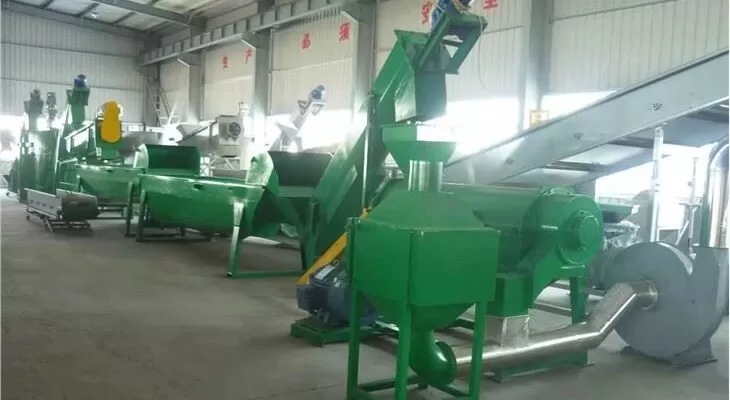Plastic pollution—it’s everywhere you look. Each year, we produce millions of tons of plastic waste, much of which won’t degrade naturally. With challenging recycling processes, complex disposal needs, and severe environmental impact, companies and eco-conscious people are facing the reality of our plastic waste crisis. As a manufacturer of plastic processing equipment, Amige is closely watching the latest advancements in recycling tech to turn the tide on this challenge.

In my view, the future of plastic recycling lies in smart and sustainable technology. New innovations not only improve efficiency in sorting and recycling plastic but also reduce energy consumption, paving the way for a cleaner, greener planet. But what does that future look like? Let’s dive in.
Why is Plastic Recycling Technology So Important?
Plastic is an essential part of daily life, but it’s no secret that it’s hard to manage. Plastic can take hundreds of years to degrade, and the 300 million tons produced yearly impose a heavy burden on the environment. Without effective recycling methods, plastic pollution is only going to worsen.
So, advancing plastic recycling technology isn’t just an economic interest. It’s crucial for our environment. Efficient recycling methods give plastic a second life and keep it out of landfills.
What Will Be the Core of Plastic Recycling Technology in the Future?
In the coming years, AI and big data will be the backbone of plastic recycling. Through data analysis, we can optimize sorting processes, improving the efficiency of recycling. For example, AI-powered recognition systems can automatically sort plastics by type, not only speeding up recycling but also improving the quality of recycled materials.
This automated recycling system is a game-changer, especially for handling the massive volumes of plastic waste produced worldwide. Traditional methods rely on manual sorting, which is slow and often inefficient, while smart systems offer a complete overhaul.
Can Biodegradable Plastics Replace Traditional Plastics?
Biodegradable plastics are gaining traction as a replacement material, but their high cost and complex production still create barriers. Today, only a few types of bioplastics are fully degradable, while most require specific environmental conditions to break down.
However, as technology advances, the cost of biodegradable plastics will likely decrease, making them a significant part of the recycling industry’s future. This development will mean more efficient handling of hard-to-recycle plastic types.
Mechanical vs. Chemical Recycling: Who Will Lead the Future?
Mechanical recycling and chemical recycling are the main types of plastic recycling. Mechanical recycling is ideal for single-material plastics, while chemical recycling can break down complex structures into their original components. Each has its strengths, and in the future, we’ll see more hybrid use of these methods.
As chemical recycling progresses, we’ll be able to process more complex, mixed plastic materials, increasing the overall recycling rate. A blend of both technologies may become the new norm in plastic recycling.
What Role Does Energy Recovery Play in Plastic Recycling?
When plastics can’t be reused or recycled, energy recovery comes in as a last resort. This involves burning plastic waste to produce energy, which can reduce dependency on traditional fuels. Although burning plastic can release carbon dioxide, modern techniques significantly minimize harmful emissions.
At Amige, we’re exploring new ways to maximize energy recovery with innovative incineration methods that have minimal environmental impact. In the future, we might even adopt cleaner energy conversion technologies to achieve true sustainability.
How Can the Circular Economy Model Help Achieve Zero Waste?
The ultimate goal of plastic recycling is to achieve zero waste, which is at the core of the circular economy. The circular economy focuses on resource reuse and waste reduction. In this model, plastic waste is repurposed as a resource, preventing it from ending up in landfills.
At Amige, our vision is to help build this kind of circular economy, where plastic recycling technologies can evolve to ensure true circular regeneration. We believe that with ongoing advancements, all plastics will eventually re-enter the production chain, leading us toward zero waste.
Conclusion
Advancing plastic recycling technology is vital for improving our environmental future. At Amige, we’re not just producing plastic crushers and shredders; we’re pushing forward to lead in recycling technology that will help make the world a cleaner place.
